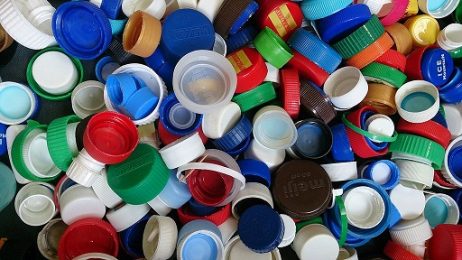PolymPart: Of all the industries that stand to gain or lose the most from the growing trend to recycle or ban single-use plastics or replace them with reusable products, oil and gas and petrochemical firms stand out.

The move to ban single-use plastics has been gaining steam around the world as some governments have begun signing off on related legislation. The European Commission’s first-ever European Plastics Strategy in 2018 was followed just months later by the European Parliament’s ban on single-use plastics by 2021.
This and similar bans – around the world from China to U.S. states – could cut petrochemical demand growth in an extreme case to one-half of its historical pace to about 2 percent a year by 2040, according to Accenture Research analysis.
It doesn’t have to be that way. In fact, oil and gas and petrochemical companies are uniquely positioned to capitalize on plastics recycling. No other industry can match their unique access to recycled waste materials in the areas where they do business, combined with their operational skills, financial strength, links to infrastructure and deep product knowledge.
Energy and petrochemical companies should act now, however, before the competition gets ahead of the game. For example, they should consider targeting recycling multiple polymer waste streams including rubber and composite materials and textiles, in addition to single-use plastics.
This process will likely require returning processed and unprocessed waste to an integrated refinery or petrochemical plant for sorting, cleaning and grinding it down so that it can be made into chemicals.
These locations, which can be set up in existing brownfield locations and thus avoid the community backlash facing new sites, are ideal for incorporating recycling technology. They are especially well-positioned to use chemical recycling, pyrolysis and gasification to transform durable and non-durable plastics into polymer raw materials, other chemicals or into fuel to help power site assets.
In fact, energy and petrochemical firms are experts at this type of process manufacturing and can scale and optimize recycling efforts at a level not possible in many industries, backed by their strong capital position, R&D and marketing strengths, as well as links to infrastructure including rail, ports and roads.
It will be interesting to see which companies pursue new technologies and software at scale for sorting waste like infra-red and near infra-red laser sensors and detectors. Likewise, artificial intelligence, machine learning and other Industry X.0 technologies hold the potential to help overcome the sorting challenges.
However, while the necessary technology is mostly at hand, the biggest challenges may be in the supply chain and from consumers who are at the end of the delivery chain.
Strong collaboration will be needed, especially with integrated petrochemical companies, waste-handling companies and governments.
Chemical companies in particular will need to overcome negative consumer sentiment. Our recent research showed that 49 percent of 6,000 consumers globally ranked the chemical industry as the least concerned of nine industries included in the survey about its impact on the environment. However, 72 percent of surveyed consumers also said they are buying more environmentally-friendly products than five years ago, and 81 percent plan to do the same in the next five years.
These responses reflect an encouraging trend for our planet, for the companies that make these better products and for the chemical companies that provide the building blocks for them.
Nevertheless, 77 percent of consumers in our survey perceive plastics to be the least environmentally friendly packaging material.
So, where should oil and gas and petrochemical companies start in turning this backlash into business opportunities?
Certainly, they should increase their commitments to responsible business practices, as many have already done.
However, as mentioned in Accenture Strategy’s “Waste to Wealth: Creating Advantage in a Circular Economy,” the first steps are to realize that there is no single “right” answer for every company, which must carefully choose its business model and make sure it can access the key enabling technologies to support and scale the chosen model.
After that, companies must develop all the capabilities that allow them to effectively deploy and operate according to circular economy principles.
But above all else, I cannot emphasize enough the urgency to act now.
With the race already started by new recycling and reuse initiatives, plus the bans on single-use plastics, the pace will be relentless. It will be run or be run over from here on out.
Source: https://www.forbes.com/sites/jeanmarcollagnier/2019/08/01/oil-and-petrochemical-companies-run-with-or-be-run-over-by-plastics-recycling/#3ba9a9505632
